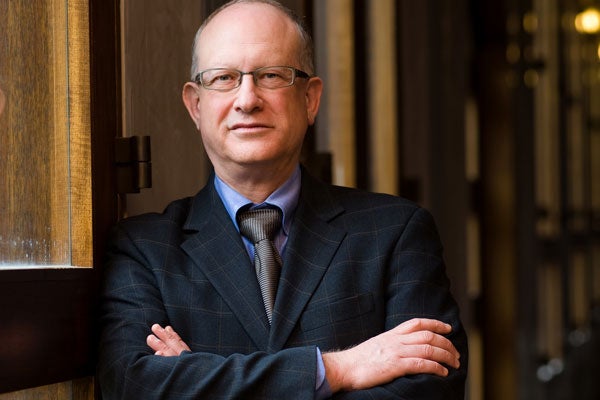
$2.9M to U of T project on building Canada's digital economy
Published: August 28, 2014
How can Canada best respond to the challenges posed by a rapidly changing digital landscape, while benefiting from emerging opportunities to promote our economic prosperity?
That is the question at the root of a major new research partnership led by David Wolfe, a political scientist at U of T Mississauga and co-director of the Innovation Policy Lab at the Munk School of Global Affairs.
“Creating Digital Opportunity: Canada’s ICT industry in global perspective” will receive $2.9 million from the Social Sciences and Humanities Research Council (SSHRC) over six years. With additional funding from U of T and other partner universities, firms and organizations, the total project funding is $5.1 million.
SSHRC awarded a total of $44 million on August 27 through its Partnership Grants and Partnership Development Grants programs to universities across the country.
The Partnership Grants program supports formal partnerships between academic researchers and external partners to advance knowledge and understanding on questions of intellectual, social, economic and cultural significance.
Wolfe believes that evolving digital technologies are critical to the global economy and to Canada’s future economic growth and prosperity. He says that the rapid pace of innovation and shifting global leadership in digital technology are creating major challenges for Canada’s digital industries and, at the same time, new opportunities.
“The Innovation Policy Lab is thrilled to receive this substantial initial funding from SSHRC and launch a major new research project on the prospects for the digital economy in Canada in association with our lead partner, the Canadian International Council,” says Wolfe. “Our ability to create, adopt and utilize new digital technologies across every sector of the economy will determine Canada’s future success and economic well-being. The research from this project will help shape public policy to ensure that Canada is able to fully seize the digital opportunity that lies before us.”
U of T also won four funding awards in the Partnership Development Grants program. These smaller awards are intended to enable researchers to foster, design and test new partnerships. The following U of T faculty are heading up projects that each involve a number of partners:
 |
Stephanie Springgay, Ontario Institute for Studies in Education (OISE), “Performing lines: innovations in walking and sensory research methodologies,” $199,400. |
 |
Randall Hansen, Department of Political Science, “Migrants, refugees and the international state system,” $191,092. |
|
|
Morley Gunderson, Department of Economics, “Determinants of apprenticeship outcomes," $76,012.00. |
 |
Katherine Tamminen, Faculty of Kinesiology and Physical Education, “Potential for change: exploring the culture of youth hockey,” $91,360. |
“Thanks to SSHRC and congratulations to these outstanding U of T scholars,” said Professor Peter Lewis, interim vice-president, research and innovation at U of T. “With so many complex problems facing society, the best way to explore and devise workable solutions is through collaboration. We look forward to seeing all of these U of T partnership projects move forward.”



